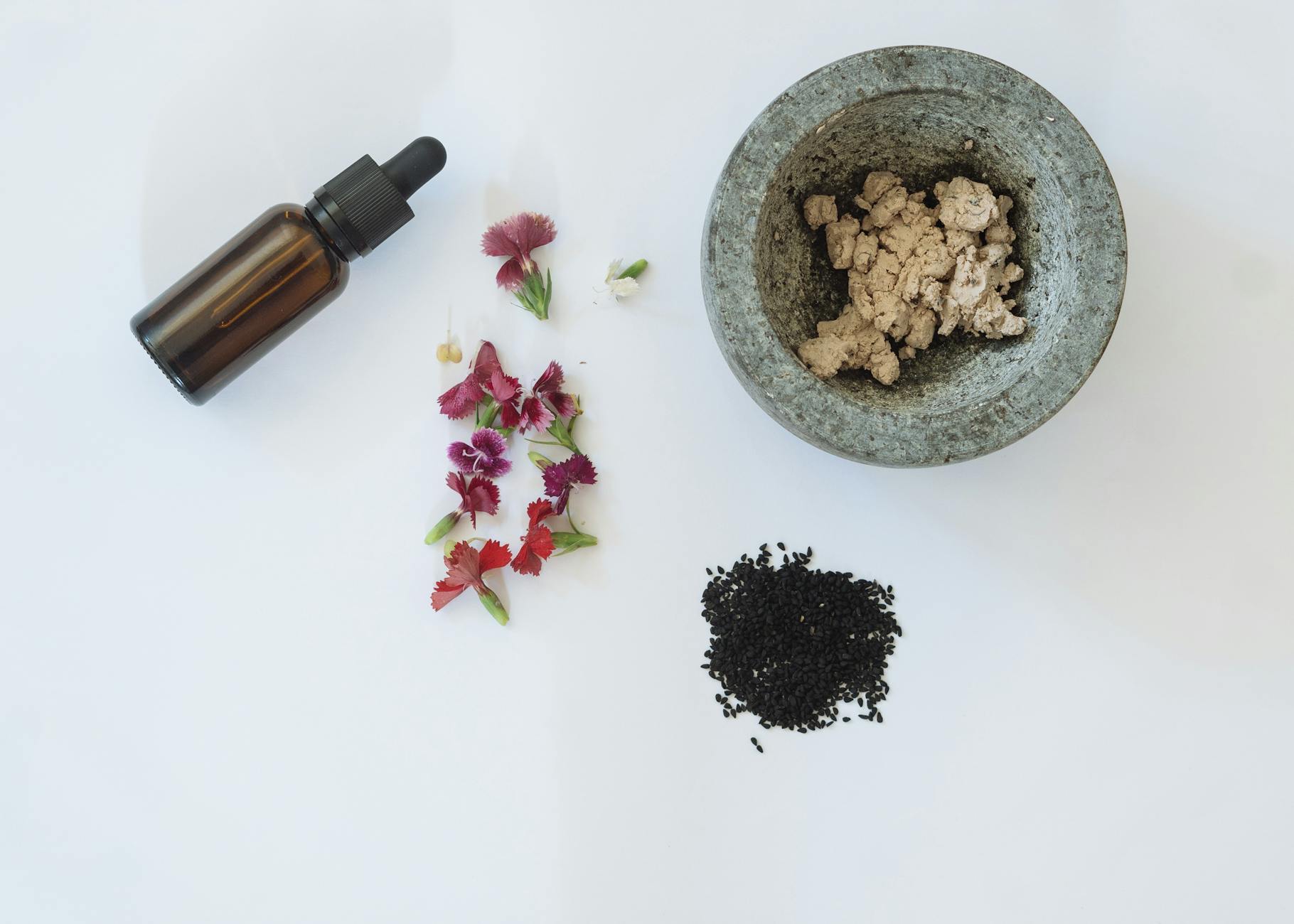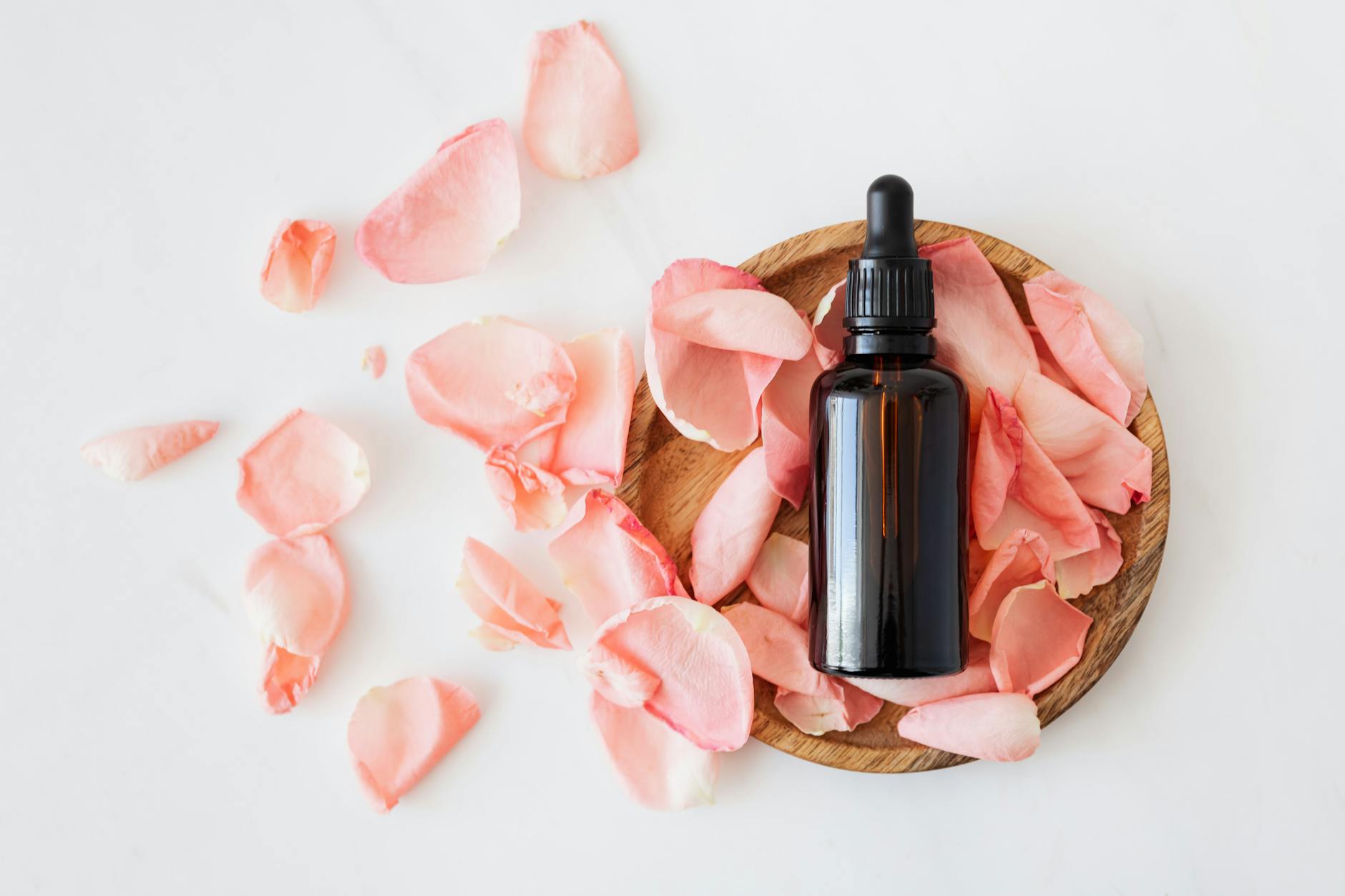The Surprising Benefits of Natural Ingredients in Skincare [Updated 2024]
Imagine a world where your skincare routine not only nourishes your skin but also nurtures the planet. That's the promise of natural ingredients in skincare, a trend that's rapidly gaining momentum. As consumers become more conscious of what they put on their skin, there's an increasing shift towards ingredients that are as kind to our bodies as they are to nature. From reducing inflammation to packing a punch with antioxidants, natural ingredients offer myriad benefits that synthetic compounds simply can't match. Dive into the world of clean, green beauty and discover how everyday ingredients like aloe vera, coconut oil, and green tea can transform your skin. Your journey to healthier, radiant skin starts with embracing nature's bounty.
Understanding Natural Ingredients in Skincare
Exploring natural ingredients in skincare can lead to a world of healthier, more radiant skin. These ingredients are derived from nature and are often free from harmful chemicals and synthetic additives. Let's dive deeper into what really makes an ingredient natural and why certain natural ingredients are celebrated for their skin-nurturing properties.
What Are Natural Ingredients?
Natural ingredients in skincare refer to substances that are sourced directly from nature—plants, minerals, and occasionally animal by-products like honey and beeswax. To be considered natural, these ingredients generally need to meet several criteria:
- Origin: They should come from natural sources without being significantly altered by chemical processes.
- Processing: Minimal processing is essential to retain the ingredient's natural properties. Techniques like cold pressing and steam distillation are commonly used.
- Purity: Natural ingredients should be free from synthetic additives, preservatives, and other artificial compounds.
- Labeling: Certification bodies like the Natural Products Association (NPA) often set stringent guidelines to ensure products labeled "natural" truly are.
Popular Natural Ingredients and Their Benefits
When it comes to choosing natural ingredients, certain options stand out due to their time-tested benefits. Here are some popular ones and why they are good for your skin:
Aloe Vera
Known for its soothing and hydrating properties, aloe vera is a favorite for calming irritated skin. It contains vitamins, minerals, and antioxidants that help moisturize and heal skin.
 Photo by Monstera Production
Photo by Monstera Production
Coconut Oil
Coconut oil is incredibly moisturizing and can penetrate deep into the skin, making it highly effective for dry skin. It also has antibacterial properties, which can help reduce acne.
Honey
A natural humectant, honey helps retain moisture in the skin without making it oily. It's also rich in antioxidants and has antibacterial properties, making it great for acne-prone skin.
Shea Butter
Shea butter is known for its rich, creamy texture that deeply nourishes the skin. It contains vitamins A and E, which help to protect the skin from damage and promote healing.
Make sure to check the labels and opt for brands that emphasize transparency about their ingredient sources and processing methods. As you embrace these natural wonders, your skin will thank you with a healthy, radiant glow. Keep discovering more as we continue to delve into the magical world of natural skincare.
Benefits of Natural Ingredients for Skin Health
Natural ingredients have been a cornerstone in skincare for ages, offering unmatched benefits that synthetic ingredients struggle to replicate. These naturally-derived elements are brimming with properties that can nurture, heal, and protect our skin in ways that commercial products often can’t achieve.
Gentle on the Skin
Natural ingredients are generally gentler on the skin compared to synthetic ones. Many commercial skincare products contain harsh chemicals that can strip the skin of its natural oils, leading to dryness, irritation, and even allergic reactions. On the other hand, natural ingredients:
- Are often hypoallergenic, making them suitable for sensitive skin.
- Contain fewer irritants and toxins, minimizing the risk of skin issues.
- Have a pH level similar to our skin, helping maintain balance.
For example, aloe vera is renowned for its calming properties and is less likely to cause irritation even on the most sensitive skin.
 Photo by Sora Shimazaki
Photo by Sora Shimazaki
Rich in Nutrients
Natural ingredients are often packed with essential nutrients that are beneficial for the skin. These include vitamins, antioxidants, and essential fatty acids, which are crucial for maintaining healthy skin. For instance:
- Vitamin E: Found in many plant oils, it helps protect and repair skin.
- Antioxidants: Ingredients like green tea and berries protect skin cells from damage.
- Essential Fatty Acids: These can be found in ingredients like avocado and coconut oil, which help maintain the skin's lipid barrier.
When you choose products with natural ingredients, you are giving your skin a nutrient-dense treat that promotes overall skin health.
Anti-inflammatory Properties
Many natural ingredients have potent anti-inflammatory properties, which help soothe irritated skin and reduce redness. Ingredients like chamomile, green tea, and calendula have been used for centuries for their medicinal properties. They work by:
- Reducing inflammation and soothing the skin.
- Helping to manage conditions like eczema and rosacea.
- Accelerating the healing of minor cuts and burns.
Chamomile, for example, is often used in skincare products for its ability to calm the skin and reduce inflammation.
Antioxidant Protection
Antioxidants are crucial for protecting the skin from environmental stressors like pollution and UV radiation. Natural ingredients like green tea and coffee berry are rich in antioxidants, which help:
- Neutralize free radicals that cause skin aging.
- Protect the skin from sun damage.
- Enhance the skin's natural repair process.
Green tea is particularly effective due to its high content of polyphenols, powerful antioxidants that protect and rejuvenate the skin.
Incorporating natural ingredients into your skincare routine not only benefits your skin but also aligns with a more sustainable and eco-friendly lifestyle. By choosing products made from natural sources, you are opting for a healthier alternative that supports not just your skin, but overall well-being.
How to Incorporate Natural Ingredients into Your Skincare Routine
Transitioning to natural skincare products can transform your routine into a more sustainable and effective practice. By choosing ingredients straight from nature, you can nourish your skin without the side effects of synthetic additives. Here's how you can start incorporating natural ingredients into your daily skincare regimen.
Best Natural Ingredients in Handmade Soap
Handmade soaps are a fantastic way to introduce natural ingredients to your skincare. These soaps are carefully crafted using botanicals and essential oils that cleanse without harmful chemicals.
 Photo by RF._.studio
Photo by RF._.studio
Some of the best natural ingredients found in handmade soaps include:
- Olive Oil: Deeply moisturizing and rich in antioxidants.
- Coconut Oil: Provides excellent lather and has antibacterial properties.
- Shea Butter: Nourishes the skin with vitamins A and E.
- Lavender Oil: Adds a soothing fragrance with anti-inflammatory benefits.
Using soaps with these ingredients ensures your skin is cleansed gently and efficiently.
Starting With Basics
When beginning your journey with natural skincare, it’s wise to start with basic products like cleansers and moisturizers. These are the foundation of any skincare routine and are easy to swap for natural alternatives.
- Natural Cleansers: Look for options with ingredients like honey, aloe vera, and chamomile. These not only clean your skin but also provide soothing and hydrating benefits.
- Natural Moisturizers: Coconut oil, shea butter, and jojoba oil are excellent choices. They hydrate the skin without clogging pores and are suitable for all skin types.
Starting with these basics helps you experience the benefits of natural ingredients without overhauling your entire routine at once.
Reading Labels
Not all products labeled "natural" truly are. It's crucial to read ingredient labels carefully to ensure you're getting what you expect. Here's how to decipher the labels:
- Check the First Five Ingredients: The first few ingredients make up the bulk of the product. Ingredients like water, aloe vera, and plant oils are good signs.
- Avoid Synthetic Additives: Watch out for parabens, sulfates, and artificial fragrances. These are indicators that the product may not be entirely natural.
- Look for Certifications: Certifications from bodies like USDA Organic or the Natural Products Association can guarantee the product's natural integrity.
By carefully reading labels, you can make informed choices and ensure that you’re using truly natural products on your skin.
Incorporating natural ingredients into your skincare routine doesn't have to be overwhelming. Start with handmade soaps, basic cleansers and moisturizers, and always read the labels to make the best choices for your skin.
Potential Drawbacks and Considerations
While natural ingredients have numerous benefits, it's important to be aware that they aren't without potential drawbacks. Understanding these can help you make the best choices for your skin and ensure you get the most out of your skincare routine.
Allergic Reactions
Even though natural ingredients are generally considered safer for the skin, some people can still experience allergic reactions. Just like with synthetic ingredients, our unique skin chemistry can sometimes react negatively to natural substances.
- Common Allergens: Ingredients like lavender, tea tree oil, and chamomile can cause reactions in sensitive individuals.
- Symptoms: Reactions might include redness, itching, swelling, or a rash.
It's always a good idea to patch test a new product before applying it all over your face or body. Apply a small amount of the product to a spare patch of skin, like your wrist or behind your ear, and wait 24-48 hours to see if any reaction occurs.
 Photo by Karolina Kaboompics
Photo by Karolina Kaboompics
Shelf Life and Preservation
Natural skincare products often have a shorter shelf life compared to their synthetic counterparts. This is because they lack the strong preservatives that keep conventional products fresh for extended periods.
- Spoilage Risk: Without preservatives, natural ingredients can spoil quickly, leading to bacterial growth and the potential for skin infections.
- Storage Tips: To extend the shelf life of natural products, store them in a cool, dark place, and always seal the containers tightly after use.
In some cases, natural products utilize mild preservatives like vitamin E, rosemary extract, or grapefruit seed extract to help extend shelf life slightly. However, these are not as effective as synthetic preservatives, so it's essential to keep an eye on expiration dates and signs of spoilage.
By understanding the potential drawbacks of natural ingredients, you can be better prepared to handle any issues that might arise. While natural products can provide amazing benefits, acknowledging and addressing their limitations will help you make more informed choices for your skincare routine.
Conclusion
Natural ingredients in skincare bring a wealth of benefits to both your skin and the environment. Packed with vitamins, antioxidants, and anti-inflammatory properties, ingredients like aloe vera, coconut oil, and green tea provide effective and gentle care. They help soothe, nourish, and protect your skin without the adverse effects commonly associated with synthetic products.
By integrating natural ingredients into your skincare routine, you're choosing a path toward healthier skin and a more sustainable lifestyle. Embrace the power of nature and enjoy the radiant, glowing skin that follows. Your skin and the planet will thank you.

![The Surprising Benefits of Natural Ingredients in Skincare [Updated 2024]](http://hakodeshhandcrafts.com/cdn/shop/articles/bathtub-8799006_640.jpg?v=1719639165&width=1100)